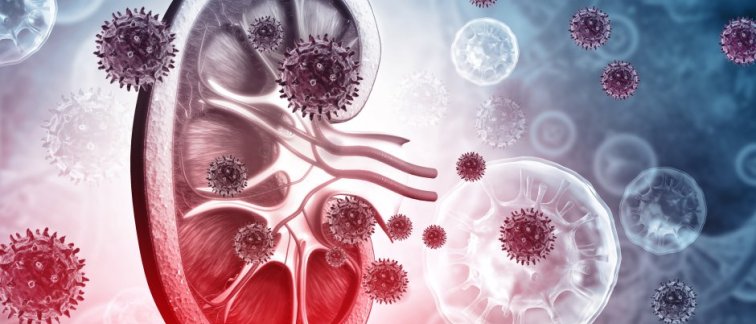A large clinical study at four Dutch university hospitals has shown that booster vaccinations against the coronavirus work for people with a new kidney, contrary to previous research. Even if patients did not develop an immune response after the first two or three shots, sixty percent of patients had an activated immune system after a follow-up shot. These results were published in The Lancet Infectious Diseases.
Kidney patients have a higher risk of a severe course of COVID-19 and are more likely to die from the disease than healthy people. Previous studies have looked at whether kidney patients respond well to vaccinations. These studies showed that people with a kidney transplant have a lower immune response, only half develop antibodies after two vaccines. One explanation is that they take drugs that suppress the immune system, to prevent rejection of the transplanted kidney.
A group of researchers, led at Amsterdam UMC by nephrologist Frederike Bemelman and Sophie Frölke, investigated whether a different vaccination strategy could improve the immune response in these patients. The study, funded by The Netherlands Organization for Health Research and Development (ZonMw) and Dutch Kidney Foundation, was conducted at four Dutch university hospitals: Radboudumc Nijmegen, Amsterdam UMC, UMC Groningen and Erasmus MC Rotterdam.
No differences between groups
The study involved more than 300 kidney transplant patients who still had no antibodies against the coronavirus after two or three vaccines, based on blood measurements. Luuk Hilbrands, Professor at Radboudumc and coordinating author of the article: “The control group received one dose of Moderna. In addition, we examined three alternatives. One group received a double dose, i.e. a shot of Moderna in both arms. One group received a different type of vaccine, namely Janssen. And a group received one dose of Moderna, with temporary interruption of part of the medication that suppresses the immune system.”
The study found that around sixty percent of the participants developed an immune response after these booster vaccinations. The research team looked at antibodies and also at immune cells. They saw no differences in the immune response between the groups studied. So the type of vaccine, dose, and discontinuation of immunosuppressive medication made no difference.
Keep boosting
The main message of the study is: keep vaccinating. “If after two or three vaccinations we still don't measure an immune response in people with a new kidney, they tend to stop vaccinating. Now it turns out that a subsequent booster does have an effect; in our study, sixty percent received a response,” Hilbrands explains. “After each booster we achieve an immune response in more people. Also, the concentrations of antibodies rise sharply after repeated injections.”
The value of repeated vaccination was demonstrated in this study only for people with a new kidney. But Hilbrands also recommends booster shots for other kidney patients: “Some patients also take medications that suppress the immune system, resulting in a reduced response to vaccines. Other kidney patients respond better to vaccines, but repeat vaccines remain important for them as well, because the effect of vaccination diminishes over time.”
Photography: Shutterstock

